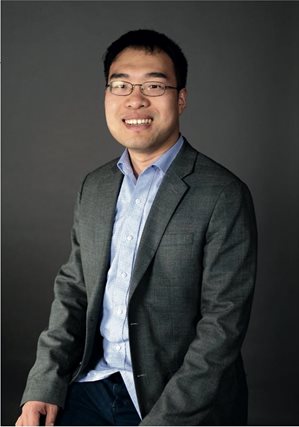 Hongzhi GuoYou have a favorite pair of shoes that are now worn out, and you’d like to buy another pair just like them, but you don’t recall where you got them or how much you paid.
Hongzhi GuoYou have a favorite pair of shoes that are now worn out, and you’d like to buy another pair just like them, but you don’t recall where you got them or how much you paid.
You know you own a glue gun, but you can’t find it, and you don’t want to buy another.
You get an email saying that the kitchen utensils you ordered are on the delivery truck, and you’d like to know how soon it might arrive.
You own a warehouse with thousands of items and need a more effective inventory control system.
All of these are examples of potential applications from a research project that Hongzhi Guo, Ph.D., assistant professor of engineering at Norfolk State, is conducting. He recently received a $499,337 award from the National Science Foundation’s 2022 Faculty Early Career Development Program (CAREER) to pursue the research.
The CAREER award, Norfolk State’s first, is NSF’s most prestigious award in support of early-career faculty. It recognizes and funds faculty members who have the potential to serve as academic role models in research and education and to lead advances in the mission of their department or organization.
The five-year award will focus on developing a communication system to network objects such as clothing in a closet, envelopes in a mail
truck or bottles stored in a container. The technology developed by the research could replace barcodes used today by creating a virtual map to track items. Such a system is superior to barcodes, which can geolocate items as they are scanned but not between contact points.
Guo came to the United States from China 10 years ago. He earned a master’s degree from Columbia University and then his doctorate in electrical engineering in 2017 from the State University of New York (SUNY) at Buffalo. In 2019, he joined Norfolk State because “I was very impressed when I took a tour of the facility. I believed this was the platform to support me for success.”
He is excited about the award and the opportunity it will provide to work with undergraduate and graduate students interested in research. The award is used to cover student stipends and other expenses.
“I think it is good for students and the University from two
aspects,” says Guo, who has mentored 10 graduate students and 20 undergraduates so far. “First, the research helps the students understand what they are learning. This is especially important for their junior and senior years. Second, the research helps us with student retention. We pay the students a stipend, and they prefer to stay rather than transfer or drop out. They also decide to stay here for their master’s degrees.”
Guo says he tries to provide research opportunities for any interested student. “I think it is very important.” He pairs senior students with sophomores to work on projects that the less experienced students might not understand on their own. A sophomore may not understand circuits, for example, but after working on a circuit project during the summer with a senior, the student then feels confident to enroll in a circuit class as a junior or senior.
“We can build a strong community through these kinds of activities,” Guo says.
Guo’s supervisor, Patricia Mead, PhD, professor and Engineering Department chair, says she’s been happy to support him as a junior faculty member. “The students speak very highly of him. I’m fortunate to have been able to work with Dr. Guo. He’s been outstanding.”
Mead, who was a CAREER award winner herself in 1997 as a young faculty member at the University of Maryland, says the CAREER award is very competitive throughout the United States. “I was jumping up and down in my office,” says Mead, when she got word that Guo had won the award.
“Words cannot explain how much I think of Dr. Guo as a colleague in our department,” she says. “He has everything I would like to see inevery faculty member.”